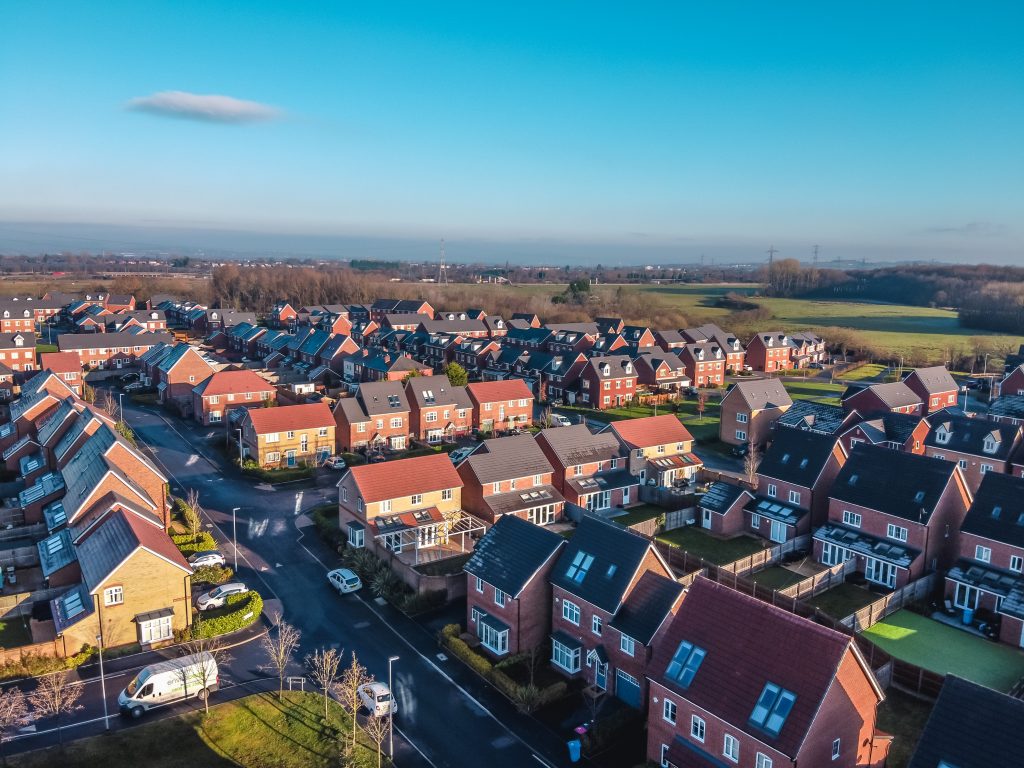Mortgages & Equity Release
Purchasing a home can be one of life’s most stressful experiences, and potentially the biggest financial commitment you are likely to make.
Take a look at our guides below to understand where we can support you throughout the process…
Independent, Fully Qualified and Decades of Experience
At Invest Southwest we are fully qualified, Independent Mortgage Brokers. Unlike Restricted Mortgage Brokers, Banks and Building Societies that normally only have access to a much smaller range, being Independent means we have access to many products offered by many different lenders, including most Banks and Building Societies.
TALK TO US FOR FREE. Our initial consultation is free of charge, however long it takes. For your reassurance, we will never levy a charge unless we can demonstrate that we can benefit you in doing so.
Call 01823 353970 to speak to a mortgage adviser
The Benefits of working with us:
- HIGHLY COMPETITVE INTEREST RATES - Comprehensive analysis of the market
- WIDE RANGE OF MORTGAGE PRODUCTS - Offering greater choice
- POOR CREDIT RATING OPTIONS - We have an excellent track record of sourcing lending for those that have been unfortunate enough to have picked up a bad credit rating
"We were more than satisfied with the service we received. As we were first time buyers, we both had little knowledge in the process of buying a property. You were very patient and went through everything in clear steps until we understood. We would definitely recommend Invest Southwest.
Mr & Mrs B, Bristol
Frequently Asked Questions
MORTGAGES - What is a mortgage?
A mortgage is the loan that you take out which is secured against your property that enables you to purchase your home.
The lender will charge you interest in return for lending you the money. Over the term of the mortgage you will need to pay the lender the interest and the amount you originally borrowed in full. The mortgage lender has the option of taking possession of the property and selling it on if the mortgage repayments aren’t made.
What is a Royal Institution of Chartered Surveyors (RICS) HomeBuyer Report?
A RICS HomeBuyer Report is a type of home survey aimed at homebuyers and intended for conventional properties in reasonable condition. The report describes the condition of the property and any potential risks or defects, and provides advice on repairs and ongoing maintenance. Findings are presented in a standardised format using a traffic light rating system, and may optionally include a valuation, including insurance rebuild costs.
The RICS HomeBuyer Report is a middle ground, providing more information than a RICS Home Condition Report but remaining less expensive than a RICS Building Survey.
How much can I borrow?
Every lender will be different in their approach to what you can borrow and unfortunately there is no set calculation. The actual amount you’re eligible to borrow will be determined by the cost of the property you wish to purchase, the size of deposit you have, your income and affordability which considers your monthly and any future financial commitments.
What is a remortgage?
This is simply swapping the mortgage you have on your current property for another mortgage with a different lender. You may consider this option if your existing mortgage deal has expired, and you want to see if a more competitive deal was available. You could also consider this if your circumstances have changed, and you want to borrow more. There are many reasons why you would remortgage, but this does not involve moving home.
What is conveyancing?
Conveyancing refers to the legal work completed by the solicitor or conveyancer you choose when buying or selling a property. It’s important to have either a conveyancer or a solicitor already lined up because as a buyer or a seller as you will need this in place to start and complete your transaction.
How do I prove what income I have?
If you are employed, you will need to provide at least your last 3 months payslips as a guide and sometimes your P60.
If you are self-employed, the easiest way to prove your income is via SA302s which can be obtained from HMRC. Alternatively, at least 2 years' trading accounts may also be acceptable to lenders. Some lenders may have other requirements. You will also be required to provide your bank statements for the last 3 months. If you have any other form of income, eg tax credits, then written evidence from the provider will be required.
How long do I take my mortgage out for?
The answer to this is down to your personal circumstances. We would always advise speaking to a mortgage adviser to ascertain what term is suitable to your circumstances.
How do I choose the most suitable mortgage for me?
One of the most difficult aspects of organising a mortgage is sorting through the hundreds of mortgage deals currently available. To establish what is suitable and available to you, it is important to take into account your current circumstances as well as your priorities and long-term plans.
What fees might I incur when taking out a mortgage?
Typically, fees could include:
Valuation fee - charged by the lender to value the property and generally paid-up front on application.
Solicitors’ fees – charged by the solicitor to complete the conveyancing transactions on the property.
Stamp duty land tax – a tax levied by the government on any property purchase in England or Northern Ireland over a specified value.
Land Transaction Tax - is a tax paid when you buy a residential property, or a piece of land in Wales over a specified value.
Land & Buildings Transactions Tax - is a tax paid when you buy a residential property in Scotland over a specified value.
Lender arrangement fees – charged by the lender for arranging the loan. This can be added to the loan in most circumstances but will therefore increase the size of the loan.
Booking fee – charged by the lender for booking the funds for your mortgage and typically charged on application
Broker fees – may be charged if you are using a broker and payable either up front or on completion
Do I have to repay my Mortgage by a certain age?
The answer to this is down to your personal circumstances, although in some cases it might be a lender's condition for the loan. We would always advise speaking to a mortgage adviser to ascertain what term is suitable to your circumstances.
What is the difference between a Standard Variable Rate (SVR) and a Tracker Rate?
Both of these are types of variable rate mortgages, which means that they may change as the Bank of England changes the base rate.
A standard variable rate is the lenders normal mortgage rate, i.e. does not include any discounts or deals. It tends to follow the Bank of England rate, but not exactly.
A tracker mortgage is linked to a particular base rate. Two of the most common ‘tracked’ are the Bank of England Base Rate and London Interbank Offered Rate (LIBOR).
What is an Early Repayment Charge (ERC)?
Should you wish to repay the mortgage in full or part before the deal ends, you usually will have to pay an ERC.
In most circumstances this is charged as a percentage of the loan.
Do I need insurances with my Mortgage?
Your mortgage lender will require you to have buildings insurance in place as you move into your new home. Home insurance combines buildings and contents insurance to cover your most valuable asset. We would recommend that when you take out a large debt, you should also consider protecting it against the unthinkable like death, injury or long-term illness.
How much deposit do I need?
In some circumstances, mortgages can be arranged from as little as using a 10% deposit, however generally the larger the deposit you can afford the cheaper the mortgage repayments.
Do I have to have a survey?
A Survey is not required for a mortgage, however, in most situations it is advisable. Your adviser can explain about the different types of survey available.
What’s a repayment mortgage?
A Repayment mortgage is where you pay the interest as well as the capital borrowed, so your mortgage balance is reduced every time you make a payment. In the early years you will pay mostly the interest and a little towards your capital but in the later years you pay more towards the capital.
Can I leave my property and rent it out to someone else?
Yes, but you have to get permission from your lender first before renting it out, called ‘consent to let’. The lender may increase your rate, or you will move to a buy-to-let mortgage, which is typically more expensive.
What interest rate can I get?
Mortgage interest rates are based on several key factors, such as the provider, your loan-to-value percentage, the Bank of England Base Rate, and the product type chosen.
When you speak to one of our mortgage advisers, they will arrange to give you a personalised illustration that will show you your interest rate.
What is the property purchasing process?
Please see our First time buyers guide here
What is a product transfer/switch?
Simply when your current deal expires, you can arrange a new deal with your existing lender. Your lender will not require any further underwriting to arrange your new deal. This option can sometimes be favoured over a remortgage if your existing lender is offering a better deal, or you prefer the ease of no further underwriting.
What is a decision/agreement in principle?
A decision in principle is confirmation from a mortgage lender of how much they are willing to lend you for your mortgage. A decision in principle is not a mortgage offer, however, it makes it easier to buy a home as you can show it to estate agents and new home builders to prove you are a serious buyer.
What is an interest-only mortgage?
This is a mortgage where only the interest on the loan is paid. The criteria vary for each lender and depends on a number of factors including minimum amount of equity, minimum income & having a repayment vehicle. If you want to see if you can apply for an interest-only mortgage, please can one of our mortgage advisers.
What is a retirement interest-only mortgage?
A retirement interest-only mortgage is very similar to an interest-only mortgage and a lifetime mortgage. You only have to prove you can afford to pay the monthly interest repayments. No repayment vehicle is required as the loan is usually paid off when you die, move into long-term care, or sell the house. This mortgage type is often aimed at older borrowers, therefore, most lenders have a minimum age requirement.
Can I be gifted a deposit?
Yes, some lenders will accept gifted deposits, however, most lenders require that the gifted deposit comes from a relative. This could be a grandparent, parent, or sibling. This will need to be declared during the application.
What is a second charge?
A second charge is a second mortgage, an additional loan on top of your existing mortgage, that is secured against your home. These can also be known as secured loans.
What is a Help to Build: Equity Loan?
If you are building a home or hiring someone to build one, you may be able to get a government-backed loan to cover part of the cost. You apply for this in England, Wales, and Scotland. For more information visit Apply for a Help to Build: Equity Loan: How the loan works - GOV.UK (www.gov.uk)
What is a Lifetime ISA?
A Lifetime ISA is an individual savings account that can be used to purchase your first home or save for later in life. The advantage of this ISA is the government will add a 25% bonus to your savings, up to a maximum of £1,000 per year, to help you save faster for your deposit. You can use your savings to help you purchase your first home if all the following apply:
How do I repay my ‘Help to Buy Equity Loan’?
You can pay your Help to Buy Equity loan in full or in part (minimum is 10% of your current property value, and then in multiples of 10 i.e. 10%, 20%, 30%), either with your own money, when your sell your home, or when you remortgage. Remember, you do not have to repay your equity loan until you sell your property, or you reach the end of your main mortgage term. However, you will be charged interest on the equity loan from year 6 onwards, and the rate will increase each year until you repay the loan. The process is complex, therefore, we advise speaking to an adviser to discuss your options.
Latest Mortgages Articles
 Mortgages
MortgagesResidential Property Review – March 2024
RICS responds to the Spring Budget The Royal ...
 Mortgages
MortgagesCommercial Property Review – March 2024
Commercial property industry largely disappointed by the Spring Budget ...
 Mortgages
MortgagesHouse number 13 – unlucky or not?
A recent study1 suggests that some Brits are superstitious, as ...
 Mortgages
MortgagesResidential Property Review – February 2024
Positive start to the year for the housing market ...
Independent Mortgage Advice
Being Independent means we are able to make recommendations after we have assessed your needs, based on a comprehensive and fair analysis of the relevant market. Your home may be repossessed if you do not keep up repayments on your mortgage. The Financial Conduct Authority does not regulate some forms of buy to lets, commercial mortgages, secured loans or bridging loans.
Equity Release may involve a lifetime mortgage. To understand the features and risks, please ask us for a personalised illustration. Check that this type of mortgage will meet your needs if you want to move or sell your home or you want your family to inherit it.


